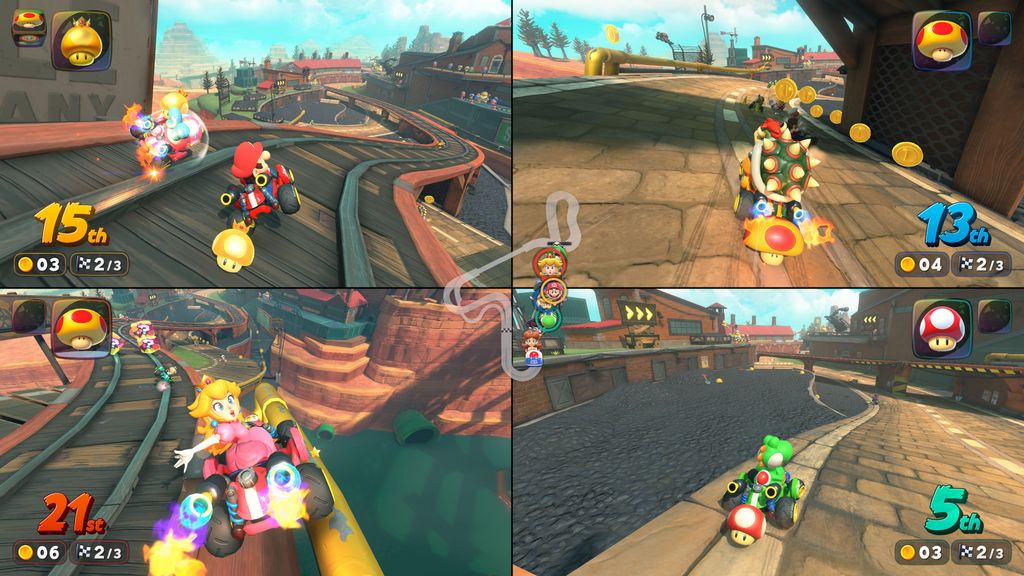The dawn of a new console generation is always met with anticipation, a mix of cautious optimism and fervent hope. For Nintendo, the launch of the Switch 2 appears to be not just a success, but a resounding statement. While new hardware sales are crucial, it’s often the accompanying software that truly tells the tale of a console`s initial trajectory. In this narrative, one game stands as an undeniable superstar: Mario Kart World. Its performance in Nintendo’s fiscal Q1 has been nothing short of extraordinary, almost rivaling the console`s sales itself.
The Unprecedented Attach Rate
Nintendo`s financial report for the quarter ending June 30th paints a remarkably clear picture: a mere 8.67 million Switch 2 consoles were sold globally. Sounds respectable, right? But then you look at the software numbers. Mario Kart World alone accounted for a colossal 5.63 million of those sales. This isn`t just “good,” it`s statistically fascinating.
For the uninitiated, this translates to an incredibly high “attach rate” – the number of games sold per console. Effectively, for every ten Switch 2 consoles sold, nearly six copies of Mario Kart World were also picked up. In an industry often characterized by fragmented software sales across a diverse launch lineup, this level of singular dominance by a first-party title is a powerful indicator of consumer demand and strategic brilliance.
The Bundle Effect: A Masterclass in Value Proposition
While Mario Kart`s inherent appeal is undeniable, this early success wasn`t merely organic. Nintendo, ever the shrewd architect of its own destiny, launched the Switch 2 with a compelling bundle deal that included Mario Kart World. Given that the game carries a suggested retail price of $80 USD—and let`s be frank, Nintendo rarely budges on the price of its perennial bestsellers, much to the chagrin of bargain hunters—opting for the bundle offered a clear financial advantage, saving consumers a tidy $30. This seemingly simple maneuver proved to be a powerful incentive, driving both console and software sales simultaneously.
It`s a classic Nintendo move: make the entry point as appealing as possible, leveraging a flagship franchise to establish an immediate, widespread install base for the new hardware. And it worked.
Chasing a Colossus: The Shadow of Mario Kart 8 Deluxe
Despite its stellar launch, Mario Kart World still has a long road ahead before it even begins to challenge its illustrious predecessor. The venerable Mario Kart 8 Deluxe on the original Switch boasts an astounding lifetime sales figure of 68.86 million units. This particular title has achieved what many in the industry consider impossible: an “evergreen” status that defies typical sales decay curves, selling consistently year after year.
The longevity of Mario Kart World will be the true test. While it has debuted with a bang, the gaming landscape of 2024 and 2025 is already bustling. Upcoming Nintendo titles like Drag X Drive, Metroid Prime 4: Beyond, and Pokemon Legends: Z-A are poised to capture significant attention. Furthermore, the recent Nintendo Direct showcased an impressive roster of 25 third-party games heading to the Switch 2 through 2026, ensuring plenty of competition for player attention and wallet share.
Nintendo`s Resilient Financial Fortunes
Beyond the impressive individual game sales, Nintendo`s overall financial health appears robust. The quarter that ended on June 30th saw the company`s sales reach approximately $3.8 billion USD, with operating profit growing a healthy 4% to $378 million USD. This positive performance is particularly noteworthy considering the prevailing global economic uncertainties, including the widely discussed impact of US trade tariffs.
Nintendo remains optimistic about its future, reiterating its forecast to sell 15 million Switch 2 consoles by March 2026. This ambitious target, set amidst turbulent financial waters, underscores the company`s confidence in its new hardware and its beloved intellectual properties.
In essence, Nintendo`s strategy of launching new hardware with a killer app has once again proven highly effective. The initial quarter for the Switch 2, dramatically bolstered by the runaway success of Mario Kart World, suggests a strong foundation for the console`s lifecycle. While the road ahead will undoubtedly feature new challenges and fierce competition, Nintendo has, for now, successfully navigated the critical early months, proving that sometimes, the simplest and most fun ideas are truly the most powerful.

